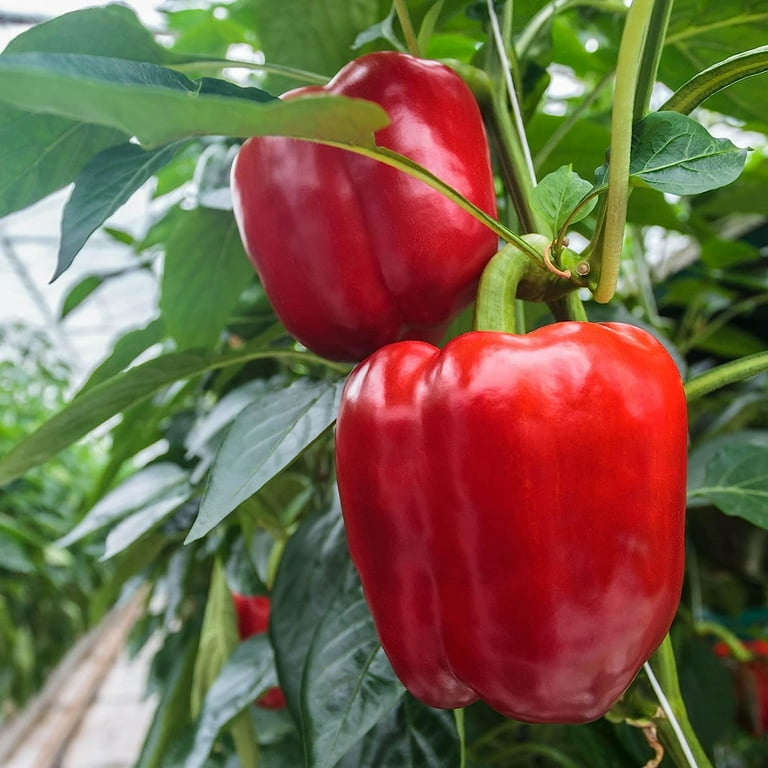Find Out the Best Fertilizers for Peppers: Top Picks for Ideal Growth
Find Out the Best Fertilizers for Peppers: Top Picks for Ideal Growth
Blog Article
Organic Vs. Synthetic Fertilizers: Which Is Best for Supporting Healthy Pepper Plants?
In the realm of nurturing healthy and balanced pepper plants, the choice in between natural and synthetic plant foods stands as a critical decision with significant effects. While both alternatives goal to give essential nutrients to support plant development, the nuances of their effect on the soil, plant health, and the setting trigger a debate that mirrors throughout the horticulture area. Comprehending the distinct advantages and potential mistakes of each fertilizer type is vital for pepper growers seeking to maximize their returns while keeping an eco-conscious and lasting strategy.
Benefits of Organic Plant Foods
Organic fertilizers provide an environmentally-friendly and sustainable method to beneficial pepper plants, offering necessary nutrients without making use of synthetic chemicals. These natural fertilizers are stemmed from organic resources such as compost, manure, bone meal, and seaweed, promoting dirt health and wellness and biodiversity. Unlike synthetic plant foods, natural choices release nutrients gradually, making certain a balanced and steady supply for pepper plants to flourish.
One considerable benefit of natural plant foods is their capability to boost soil structure and water retention. By boosting dirt health, natural plant foods promote helpful microbial task, which aids in nutrient uptake by pepper plants. Furthermore, organic plant foods decrease the danger of chemical run-off, securing water resources from pollution and protecting the setting.
In addition, organic plant foods add to long-term soil fertility by promoting the development of valuable soil microorganisms. These microorganisms aid damage down natural matter, launching nutrients in a type that is easily accessible to pepper plants. best fertilizers for peppers. By promoting a healthy dirt community, organic fertilizers support sustainable pepper farming techniques that profit both plants and the environment
Drawbacks of Synthetic Fertilizers
Synthetic plant foods, as opposed to their organic equivalents, present numerous drawbacks when made use of to nurture pepper plants, impacting both plant health and ecological sustainability. One significant drawback of artificial plant foods is their tendency to leach nutrients from the dirt rapidly. This fast leaching can lead to nutrition discrepancies in the soil, creating plants to deal with poisonings or shortages. In addition, synthetic fertilizers can hurt valuable dirt organisms, such as earthworms and valuable bacteria, disrupting the soil environment's equilibrium.
In addition, the overuse of artificial fertilizers can add to water contamination. Excess plant foods not soaked up by plants can get rid of into water bodies, resulting in eutrophication, where algae flowers deplete oxygen degrees in the water, damaging aquatic life. Artificial plant foods are usually obtained from non-renewable sources, such as fossil fuels, adding to carbon exhausts and environmental degradation during their production.
Nutrient Absorption Comparison
When comparing organic and synthetic fertilizers in terms of nutrient absorption, natural plant foods have the advantage of giving a much more well balanced and slow-release resource of nutrients. Organic plant foods include a range of macro and micronutrients that are not only beneficial for the plants however additionally advertise healthy soil microbial activity, which helps in nutrient uptake.
In addition, organic fertilizers enhance dirt structure and water retention capability, allowing pepper plants to accessibility nutrients more effectively. This enhanced dirt quality facilitates root growth, enabling much better nutrient absorption. Synthetic fertilizers, although originally enhancing plant growth as a result of their high nutrient concentrations, may hinder long-term nutrient absorption by derogatory dirt health and wellness with time.
Environmental Influence Factors To Consider
:strip_icc()/BHG-Growing-Peppers-Indoors-EzgaEnB7KML9Ym_plkvuxK-9398f1341d86483083862533ae7622db.jpg)
On the other hand, artificial fertilizers, although usually even more focused and instantly readily available to plants, get redirected here can have detrimental results on the setting otherwise applied properly (best fertilizers for peppers). Their manufacturing needs high energy inputs, bring about greenhouse gas discharges and adding to environment change. Additionally, the drainage of excess artificial fertilizers can pollute water resources, causing eutrophication and hurting marine ecological communities.
Finest Plant Food Practices for Peppers
When fertilizing pepper plants, maximizing nutrient uptake and minimizing environmental effect are vital factors to consider. To attain this, it is necessary to comply with ideal fertilizer practices tailored to the specific needs of pepper plants. One important method is to perform a dirt examination prior to using any kind of fertilizers. This test can establish the pH degree of the soil and identify any nutrient shortages, guiding you in picking one of the most suitable fertilizer formulation.
One more vital practice is to feed pepper plants at the ideal time. Normally, peppers gain from getting fertilizer at growing and after that again when they begin to flower. Over-fertilizing can lead to nutrition discrepancies and hurt the plants, so it is vital to adhere to recommended application prices.
Furthermore, selecting a well balanced plant food with an NPK proportion that fits pepper plants' needs is basic. Organic fertilizers, such as compost or manure, can be outstanding options as they launch nutrients gradually and enhance soil framework with time. However, synthetic fertilizers can give a quick nutrient boost when required. Eventually, incorporating synthetic and natural plant foods carefully can assist support healthy pepper plants while lessening ecological impact.
Conclusion

Organic plant foods provide an environmentally-friendly this website and lasting approach to nourishing pepper plants, supplying crucial nutrients without the use of synthetic chemicals. Unlike artificial fertilizers, organic choices release nutrients gradually, making sure a consistent and well balanced supply for pepper plants to grow.
Artificial plant foods, in contrast to their natural counterparts, position various downsides when utilized to nurture pepper plants, affecting both plant wellness and ecological sustainability. you can try these out When comparing natural and artificial plant foods in terms of nutrient absorption, natural fertilizers have the advantage of providing a more well balanced and slow-release resource of nutrients.Additionally, organic plant foods enhance soil structure and water retention capability, enabling pepper plants to accessibility nutrients a lot more efficiently.
Report this page